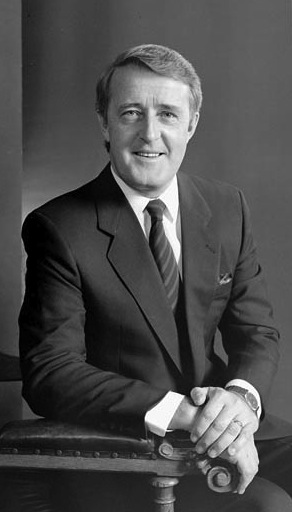Now that our sullen neo-conservative prime minister is on speaking terms once again with former PM Brian Mulroney — in desperate hopes of staving off an eventual electoral disaster in Quebec at the hands of the federalist NDP leader, Thomas Mulcair — one wonders how long it will be before the Harper Government sits down to sup with separatists.
Sure enough, it was only a few hours after Harper’s meeting with Mulroney that Industry Minister Christian Paradis, the PM’s “Quebec lieutenant,” had proclaimed a rapprochement between the Harper Conservatives and the separatist Parti Quebecois. Details, it is reported, will follow.
What a catastrophe from Prime Minister Stephen Harper’s perspective that he must eventually face an opponent who is both immensely popular in Quebec and a demonstrably a committed federalist!
Indeed, it can be persuasively argued that Mulcair is a much better federalist than Harper. Mulcair, after all, took a chance on the federal NDP at time when being anything but a sovereignist in Quebec looked like a recipe for electoral suicide. Harper is well known as a signatory to a sovereignist screed in Alberta that refuses to go peaceably down the Memory Hole, despite the best efforts of the Conservative media establishment here and elsewhere.
So now Harper, after long rejecting Mulroney as a political embarrassment over the Airbus Affair, has come hat in hand to his elder for some tips on how to make Quebec behave itself.
And one of the key secrets to Mulroney’s electoral success, as is well known, was his willingness to welcome Quebec nationalists into the federal Conservative fold.
This is not to suggest that Mulroney was making common cause with the separatist movement in Quebec for cynical reasons. On the contrary, the Conservative apologist Robert Fulford likely had it right when he stated that Mulroney “set out to bring permanent internal peace to Canada by dissolving the arguments for separatism.”
This is what drove the genuinely patriotic Mulroney’s efforts to recognize the reality that Quebec constitutes a “distinct society” within Canada, which culminated in the Meech Lake and Charlottetown accords that failed so irrevocably by 1992.
It was English Canada’s deep discomfort with recognizing that reality — with Mulroney’s vision of Canada as two nations in one country — that provided the wedge for the Reform Party under Preston Manning not only to defeat Mulroney’s constitutional proposals in a national referendum, but to set up the takeover by the Reform Party of the Progressive Conservative Party of Canada in 2003.
There is no little irony in the reality these were the circumstances that allowed the rise of the American-influenced and ideologically fundamentalist wing of Canada’s conservative movement — eventually led by the steely eyed Harper after Manning and Stockwell Day proved insufficiently hard edged — to form the government.
And now the grip on the country by Harper and his fellow ideologues is weakening, in no small part because their neoconservative nostrums are so unconvincing to the people of Quebec.
But if Mulroney only welcomed Quebec nationalists to get them to become Canadian nationalists, can we trust Harper to be motivated by the same thing?
This seems unlikely. Harper’s (neo) Conservative Party, after all, is the one that has been willing to slap Quebec at every turn and on every issue — whether it’s support for the arts, the long-gun registry or military adventures abroad — the better to drive effective electoral wedges within English Canada.
This was the party that was prepared, for example, to scream that former Liberal leader Stephane Dion and the late NDP leader Jack Layton were “selling out to separatists” when they dared in 2008 to talk of a democratic coalition that would depend on votes from the sovereignist Bloc Quebecois, a story that has now been mostly purged from the Internet.
And this was the party whose MPs shouted down Quebec MP Gilles Duceppe, then the leader of the BQ, by singing O Canada when he tried to speak about the coalition in Parliament — a crude riposte that, quite literally, must have been music to the ears of Quebec’s die-hard separatists.
“This deal that the leader of the Liberal Party has made with the separatists is a betrayal of the voters of this country, a betrayal of the best interests of our economy, a betrayal of the best interests of our country, and we will fight it with every means that we have,” said Harper at the time. …But that was then.
Do you seriously think that facing a popular national NDP leader from Quebec with impeccable federalist credentials, Harper won’t take greater risks, drive deeper wedges, make more dangerous promises, make deals with anyone, in his efforts to keep his increasingly unpopular government afloat?
Yesterday’s grainy attack ad on Mulcair — almost a parody of itself — was one part of Harper’s strategy. Seeking out strange bedfellows is obviously another.
So will Harper sup with the separatists? It is said here he is bound to. And don’t count on him using a long spoon!
This post also appears on David Climenhaga’s blog, Alberta Diary.



